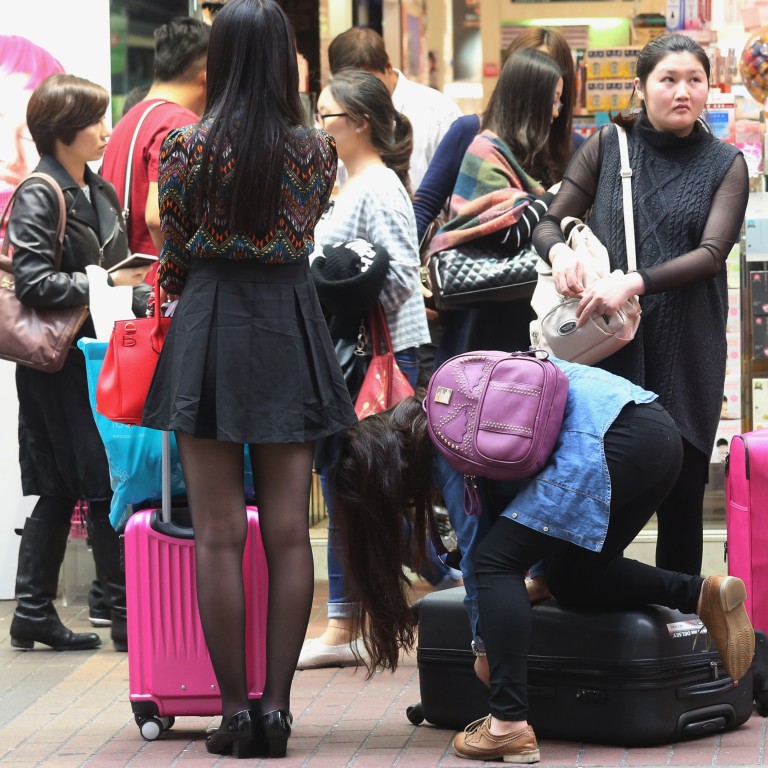
Etiquette campaign can help ease tension between Hong Kong people and mainland tourists
Franklin Koo takes inspiration from a Tokyo Metro campaign for a way to reduce tension between mainland tourists and local people
Ever since the introduction of the individual visit scheme, Hong Kong has been caught in a social conflict between its locals and tourists from mainland China. Speaking loudly, negligently rolling luggage over the feet of others, and pushing to the front of the line are just some of the complaints locals make about stereotypical mainland tourist behaviour.
While this observation may be unfair, as locals can act just as inconsiderately, the sheer influx of mainland tourists in the city raises fears that Hong Kong may soon lose its identity and become a typical Chinese city.
Most mainland tourists have no intention of being rude; they simply see no reason to act any differently here. Yong Chen, a tourism researcher at Hong Kong Polytechnic University, was quoted as saying that most "bad" tourists did not set out to be "bad"; they were just being themselves, behaving as they would at home.
Is there a simple way to reduce the social tension?
The Tokyo Metro offers an idea. For three years from 2008, posters featuring illustrations by graphic artist Bunpei Yorifuji lined its stations and trains. One memorable series came with the headline, "Please do it at home". It was a campaign to educate people on proper etiquette, such as avoiding loud conversations, and not taking up more space than they need. The popular posters depicting socially unacceptable public behaviour have served as an entertaining reminder to both tourists and locals alike.
Here in Hong Kong, the recent Face of Litter poster campaign, showing portraits created from the DNA on litter, has provoked numerous conversations and is seen as creating positive social change, proving that awareness campaigns can work if applied creatively.
The mainland Chinese government clearly sees the need for better-behaved tourists. It enacted a tourism law in 2013, requiring its citizens abroad to "comply with social public order and social morality, respect local customs, cultural traditions". Certainly, the government would support a campaign to educate mainland tourists because it is in the spirit of its tourism law.
To live in a multicultural society like Hong Kong, people must have mutual respect for one another under a common social fabric. This social fabric is derived from a set of legal, social and cultural traditions that is vastly different from the mainland's.
Giving mainland tourists and locals a chance to understand and respect Hong Kong's core social values could be a critical step towards reducing the tension between the two groups. This can start with a simple poster campaign - what have we got to lose?

